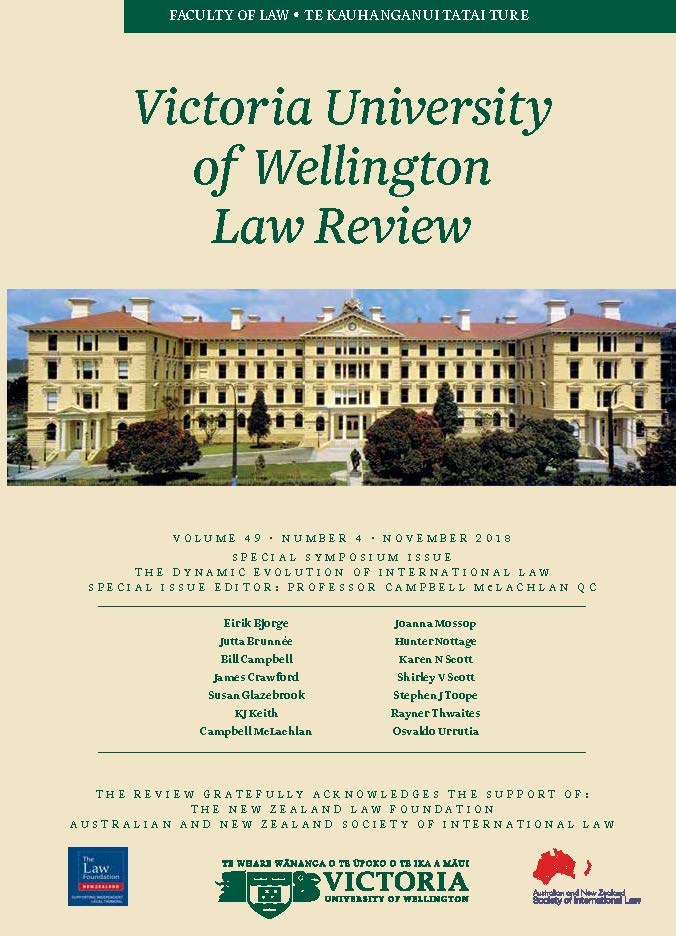The Dynamic Evolution of International Law – The Case for the More Purposeful Development of Customary International Law
DOI:
https://doi.org/10.26686/vuwlr.v49i4.5340Abstract
A fundamental underpinning of the ongoing relevance of international law is that of its ability to adapt and change to meet new developments and challenges including new technology, new (or newly developing) threats to both the public and the international order and newly developed practices, for example trans-border corporate and taxation practices. How then to effect that change?
The timely negotiation of treaties to deal with the subject matter of these new developments and challenges would be ideal but can be difficult due to a number of factors. The answer could lie in the more purposeful and expeditious development of customary international law – that is, by taking coordinated action, and by publicising that action and its legal basis.
This will not result in changes to the law of the detail that might be expected in a treaty, but it could address particular issues of moment. Indeed, individual states may well see themselves as having no option but to take action to meet time sensitive and critical aspects of new developments and global challenges either alone or in concert with others with a view to the development of a more widespread custom. Initial characterisation of some such action as "illegal but justified" (or words along those lines), whilst a contradiction in terms, does at the very least point to a real need for a change in the law. An example of such purposeful action may well be the development of the customary international law of self-defence to support the use of force against non-state actors in certain circumstances – such as the force used by a number of states against the Islamic State of Iraq and the Levant (ISIL) in Syria on the basis of the collective self-defence of Iraq.
Downloads
Downloads
Published
How to Cite
Issue
Section
License
Authors retain copyright in their work published in the Victoria University of Wellington Law Review.


